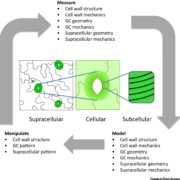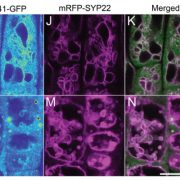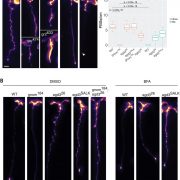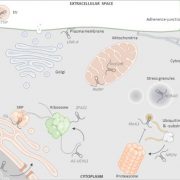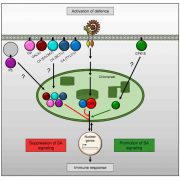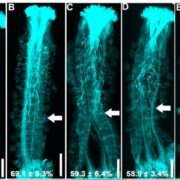Review: Stress-related biomolecular condensates in plants
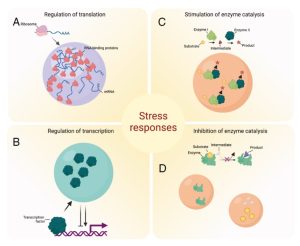 Biomolecular condensates are non-membrane-bound compartments containing proteins and RNAs with key functions in stress responses. In plants, they occur as several types with different properties and components, including stress granules and processing bodies. Protein domains such as prion-like domains and intrinsically-disordered regions provide stickiness and facilitate protein aggregation. Although much of what is known about biomolecular condensates is derived from studies in yeast and animal cells, our understanding of these processes in plants is accelerating rapidly. This review by Solis-Miranda et al. provides an overview of what is known in plants, including findings from proteomic and transcriptomic studies comparing different condensate types. Interestingly, many of the proteins in these structures are kingdom-specific, with only about 15% of plant proteins shared by yeast or animal structures. The review takes a close look at how these condensates contribute to stress resistance, and the potential to harness them for crop protection. Note: this topic is featured and two of the review authors are speaking at the ASPB Plant Biology conference in August 2023 https://plantbiology.aspb.org/plenaries/. Early registration ends soon. (Summary by Mary Williams @PlantTeaching) Plant Cell 10.1093/plcell/koad127
Biomolecular condensates are non-membrane-bound compartments containing proteins and RNAs with key functions in stress responses. In plants, they occur as several types with different properties and components, including stress granules and processing bodies. Protein domains such as prion-like domains and intrinsically-disordered regions provide stickiness and facilitate protein aggregation. Although much of what is known about biomolecular condensates is derived from studies in yeast and animal cells, our understanding of these processes in plants is accelerating rapidly. This review by Solis-Miranda et al. provides an overview of what is known in plants, including findings from proteomic and transcriptomic studies comparing different condensate types. Interestingly, many of the proteins in these structures are kingdom-specific, with only about 15% of plant proteins shared by yeast or animal structures. The review takes a close look at how these condensates contribute to stress resistance, and the potential to harness them for crop protection. Note: this topic is featured and two of the review authors are speaking at the ASPB Plant Biology conference in August 2023 https://plantbiology.aspb.org/plenaries/. Early registration ends soon. (Summary by Mary Williams @PlantTeaching) Plant Cell 10.1093/plcell/koad127


